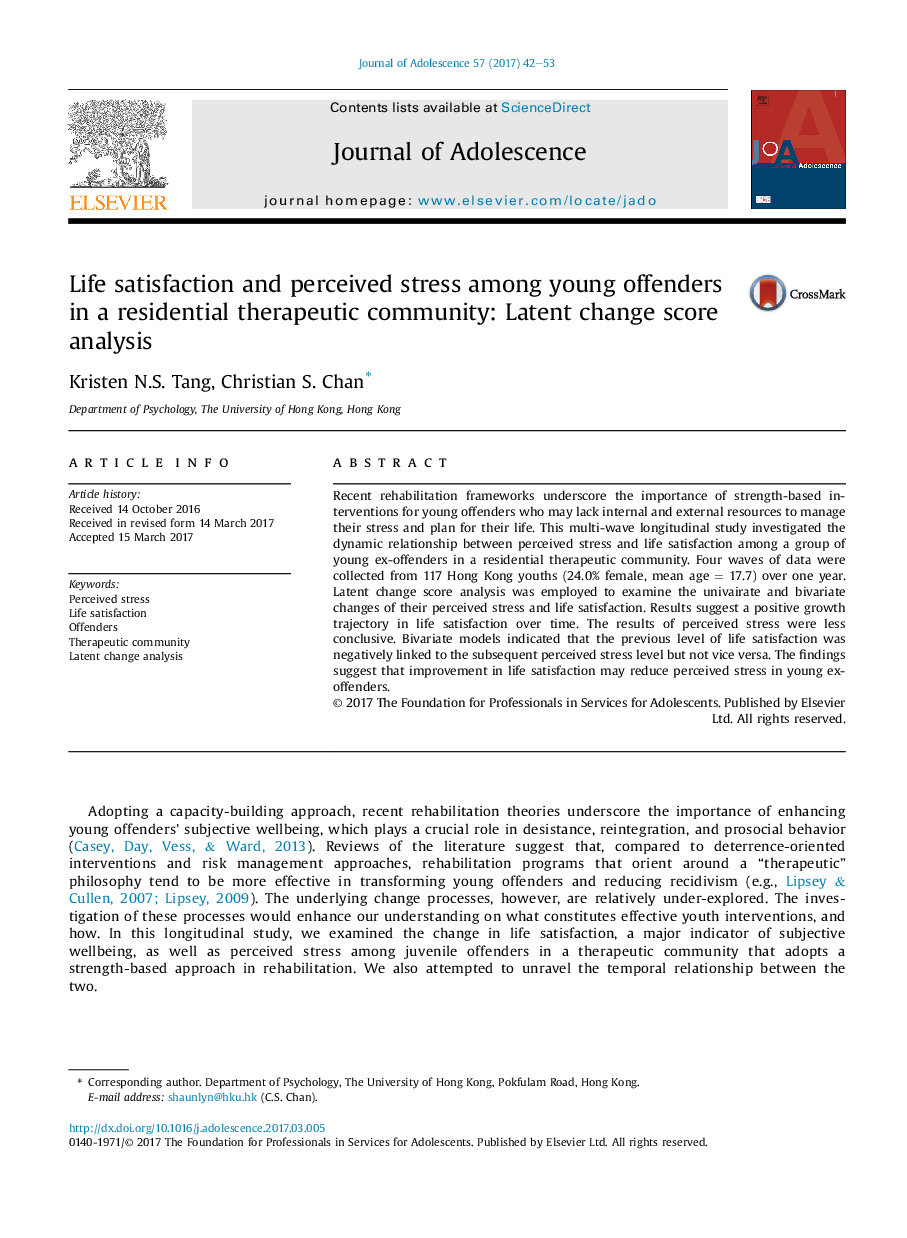| Article ID | Journal | Published Year | Pages | File Type |
|---|---|---|---|---|
| 5033947 | Journal of Adolescence | 2017 | 12 Pages |
Abstract
Recent rehabilitation frameworks underscore the importance of strength-based interventions for young offenders who may lack internal and external resources to manage their stress and plan for their life. This multi-wave longitudinal study investigated the dynamic relationship between perceived stress and life satisfaction among a group of young ex-offenders in a residential therapeutic community. Four waves of data were collected from 117 Hong Kong youths (24.0% female, mean age = 17.7) over one year. Latent change score analysis was employed to examine the univairate and bivariate changes of their perceived stress and life satisfaction. Results suggest a positive growth trajectory in life satisfaction over time. The results of perceived stress were less conclusive. Bivariate models indicated that the previous level of life satisfaction was negatively linked to the subsequent perceived stress level but not vice versa. The findings suggest that improvement in life satisfaction may reduce perceived stress in young ex-offenders.
Related Topics
Health Sciences
Medicine and Dentistry
Public Health and Health Policy
Authors
Kristen N.S. Tang, Christian S. Chan,
